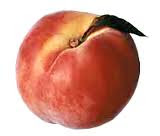In the Next Life, Canto III, stanzas 200-217
I wish as much as you we could ignore
these violations of our moral laws,
but how can we deny what came before?
What came to be thereafter had a cause.
And universal though these laws might seem,
as constant in our world as they may be,
we must remember: ’Tis not we who deem
what’s right and wrong outside our history.
The code with which these characters were raised
was well adapted to its circumstance.
If they could see our rules, they’d be amazed.
That we have ours and they have theirs is chance.
What of that book in which she was immersed?
Does it not limit with whom one may lie?
Well, yes, but she had yet to be so versed.
We learn that after how to multiply.
One day she will discover to her shame
that she abominated by the law,
but she’ll be where a father has no name.
No Compounder will ask her who’s the pa.
Her neighbors who have not been changed won’t care.
Her daughters will have near as much to hide.
The witness to her sin will be elsewhere,
for with them he did not for long abide.
’Twas shortly after he became a dad
that he took the decision to move on.
The extra work involved was not so bad,
but in a way it was due to the spawn.
It seems he noticed that he would resent
the women teaching scripture to the child.
It had been an annoyance; now it meant
that he would be more thoroughly exiled.
He could have pushed on her what he believed,
but he had not a system to compete.
He understood what dogma had achieved.
He understood what he could not defeat.
What bothered him, though, more than helplessness
was that it even bothered him at all.
He thought he’d gotten rid of all that mess
(of which he hadn’t much, you may recall).
So now he knew why reason didn’t work:
It could not reproduce as well as myth.
A missing link, however, still would lurk
until he had an origin therewith.
He knew then it was time they should return.
The women had replenishing to do,
and he had other pieces yet to learn.
He’d gotten what he needed from those two.
He figured he could get them to accept
the passage home if it would serve their Lord.
They’d find some likely targets once they stepped
into the compound with their ghostly sword.
And he was curious, I have to add,
about how well their mission would perform.
He had an inkling what was good and bad.
He’d live and die, whichever was the norm.
“Tis true: the truth to you is what you read.
The Father and the Son again exist.
It must be so; they live inside your head.
They’ll die with you, though, if you don’t assist.”
“Dear boy, you misinterpret what I meant.
The truth does not depend on what one thinks.
Our minds can but absorb and represent
by correlating and discerning links.”
“That’s as it should be, and it’s to the good
that what you know will always be the same.
Now you and Noria must cross the wood
to whence we started when we hither came.
“When I return your way, I’ll stop to check
on whether you have saved the compound’s soul,
and meanwhile I’ll get started on my trek.
I’ve long delayed my overriding goal.”
“But Ciral, you have that which obligates:
a mother and two sisters to protect.
Or would we be a daughter and two mates?
We’ll be what you prefer to be correct.”
“Familial guilt, dear Mother, won’t weigh hard
on someone who accepts no moral code
and who had very little to discard
when he discovered how to shed that load.”
“You mean to tell me you don’t feel attached
to those with whom you spent your early years?
I would remind you: You were born, not hatched,
and human nature never disappears.
“And don’t you think of she who bears your genes?
Besides the great beyond at which you scoff,
you are immortal. That’s what Baby means:
your life that will go on when you go off.”
Has no name: Remember, in the compound the concept of a nuclear family had long been forgotten., and nobody cared about paternity. Someone seems to have overlooked, however, how mothers could also be nameless.
Near as much to hide: That is, a mutual interest in keeping a lid on the story, even should anyone be interested in it.
All that mess: If Ciral, who possessed no belief system worth mentioning, couldn’t let go of the compulsion to impose a belief system on the next generation, the compulsion itself must exist independently of the system. It would have to be an intrinsic part of human nature. This is an important point.
‘Tis true: Do you get the feeling we just entered in the middle of a conversation?
As it should be: He sees no point in arguing with her, especially as he is trying to use her faith to his advantage.
Compound’s soul: At first I took this as sarcasm, but on second reading I thought maybe he was genuinely curious about how successful they would be in spreading the word.
©2010 Louis A. Merrimac
Subscribe to:
Post Comments (Atom)

No comments:
Post a Comment